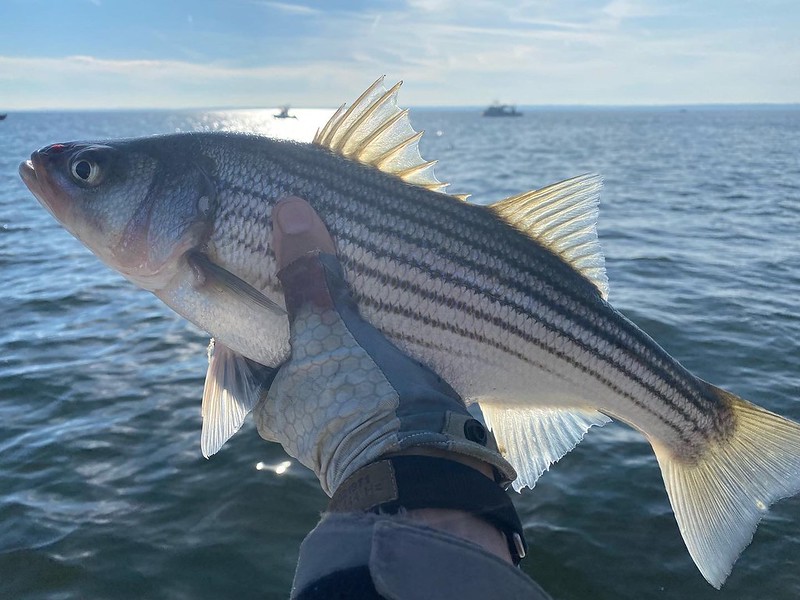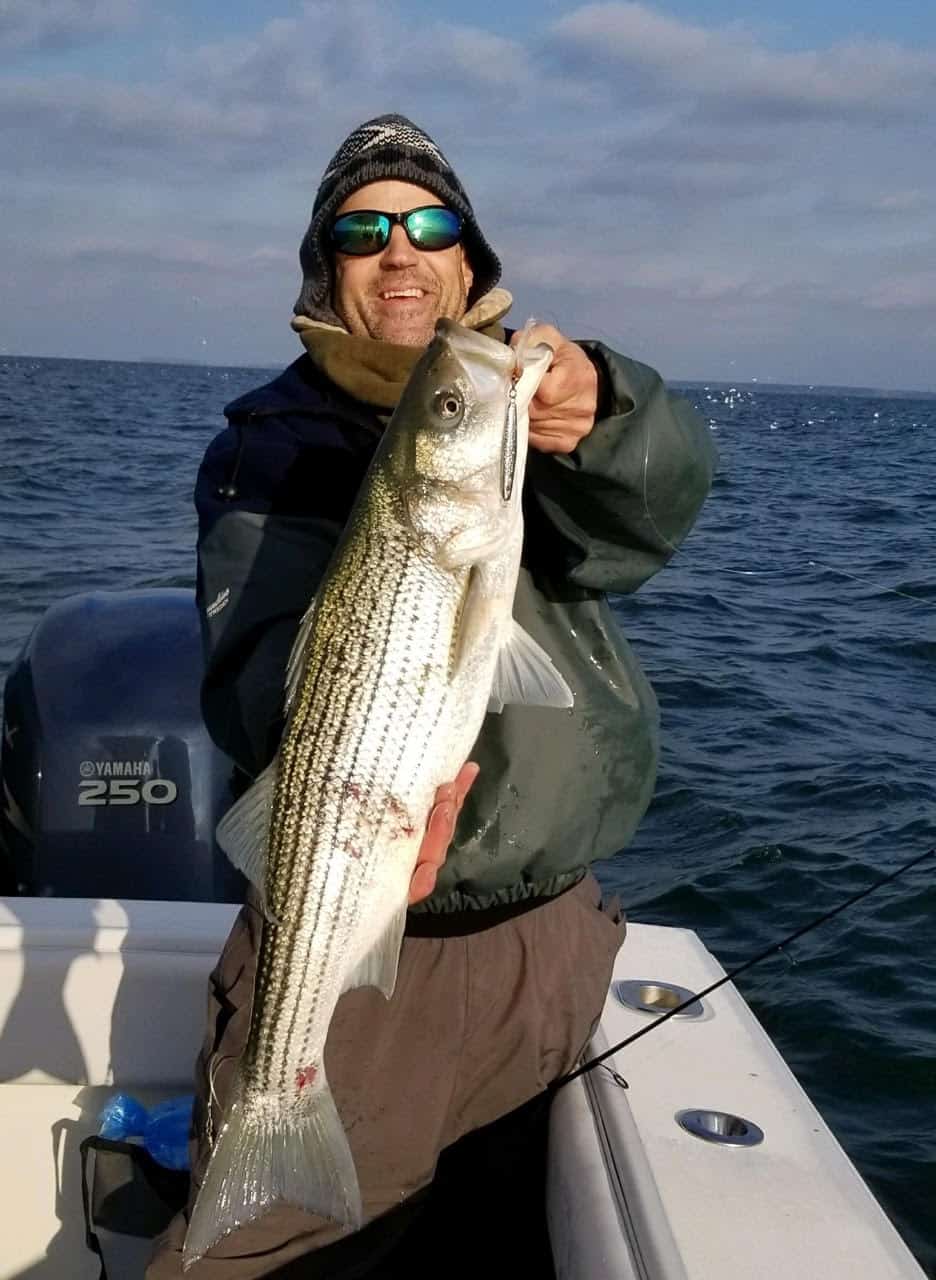It seems innocent enough: an angler catches a fish, poses for a photo proudly holding up their prize, and carefully releases the fish to swim away.
But in hot July water temperatures, even posing for a photo can be enough to kill or weaken a fish.
Keep Fish Wet, a conservation organization that promotes proper fish handling and the science behind it, has announced the second annual No Fish Dry July, “an initiative to help anglers create better outcomes for each fish they release.” For the month of July, Keep Fish Wet and Ten And Two Co, an artistic outdoor clothing and apparel brand, challenge anglers to make a month-long commitment not to take a single photo of a fish.
All month long, Keep Fish Wet will share inspiration for fish-less photography and the science behind what happens to fish as water temperatures rise. The organization concentrates on western trout and tropical saltwater flats fishing, but the science behind their studies very much applies to the Chesapeake.
July’s hot air temperatures drive Bay water up to the mid-80s and sometimes even more, driving life-giving oxygen out of solution even as it elevates our fishes’ need for it. Rockfish especially are beyond their known comfort zone here in summer, but extra-warm water also stresses speckled trout and other Bay species.
Editor’s note: The Maryland Department of Natural Resources will close the recreational and charter rockfish fishery from July 16-31.
Even if a fish swims away after being brought aboard for a photograph and released, the accumulated physiological stress of fighting the angler’s line and rod, the abrupt temperature change from water to air, and the physical stress of being handled can cause serious problems. The stress can kill it later or weaken its resistance to a waterborne disease like Mycobacteriosis.
“The way we handle Chesapeake fish during the hottest time of year is even more crucial to their well-being than it is in the cooler water temperatures of spring and fall,” said David Sikorski, Executive Director of the Coastal Conservation Association(CCA) Maryland.
“At a time when our rockfish population continues to waver, avoiding handling practices that cause undue harm to fish is a great way that Chesapeake anglers—in both Maryland and Virginia—can ‘tread lightly’ on our fish stocks and simply leave them in the water. Anglers should also take some time to brush up on what techniques are best throughout the year, and consider focusing on other fish stock when hot temperatures arrive,” says Sikorski.
Instead of publishing “Grip and Grin” photos this month, No Fish Dry July encourages anglers to post other artful shots of their summer angling experiences. For more information, visit keepfishwet.org.
Sikorski says there are plenty of resources for anglers to learn more about good release techniques for fish species. “Visit ReleaSense, a joint program of CCA, Shimano, Texas A&M, as well as sites like Fish Smart, Save a Million Bass and Keep Fish Wet. You can also check out this series of Fish Reflex Tests to tell if a released fish is going to survive, which can help you better understand your potential impacts depending how you choose to fish. You can even tune in to a What’s on the Line Podcast on good Chesapeake release techniques with Shawn Kimbro and me.”
-John Page Williams




